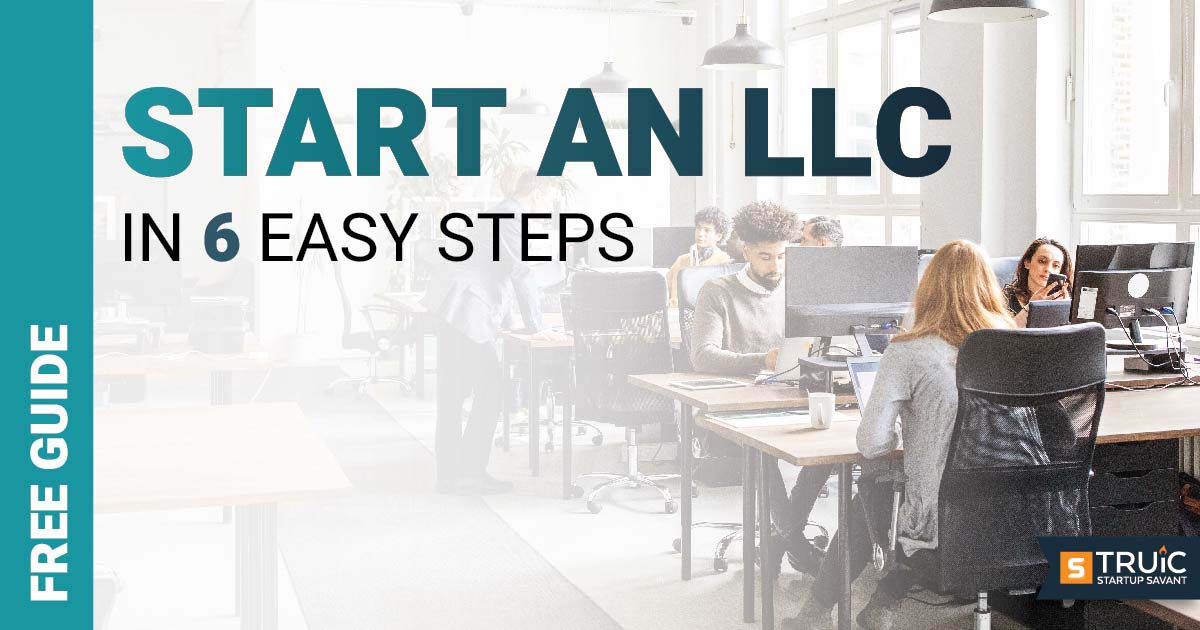The 7 Best Banks for Startups in 2024

Last Updated: By TRUiC Team
With the rise of digital banking, entrepreneurs have more options than ever before. However, it's important for startup companies to consider their specific needs when choosing a business banking partner. Overall, entrepreneurs need a bank that can provide flexible and affordable solutions.
In our review of the best banks for startups, we explore some of the top business checking account services in 2024. We've also included a variety of neobanks, which are financial technology platforms that partner with FDIC-insured banks. Check out our picks below.
Recommended Startup Bank: Open an account with Mercury and earn a $200 bonus when you deposit $10,000 or more. Get started today.
Best Banks for Startups
|
Mercury
4.9/5 |
Best Bank for Startups
|
APPLY NOW |
|
Lili
4.8/5 |
Best Bank for Small Businesses
|
APPLY NOW |
|
Relay
4.7/5 |
|
APPLY NOW |
|
Novo
4.7/5 |
|
APPLY NOW |
|
Brex
4.5/5 |
|
APPLY NOW |
|
Chase Bank
4.4/5 |
|
APPLY NOW |
|
NorthOne
4.2/5 |
|
APPLY NOW |
Business banking is a fundamental requirement for every startup and is a prerequisite for taking care of payroll, paying business insurance, collecting money, and having a merchant account to accept credit card payments.
Your business type will determine the best business checking accounts or startup banking platform you might want to consider.
7 Best Business Checking Accounts for Startups
Best Bank for Startups: Mercury
With up to $5 million in FDIC insurance, Mercury is perfect for high-growth tech startups. Start your banking journey today and enjoy a $200 welcome bonus when you deposit $10,000 or more.
Continue reading our full review of the best business bank accounts for startups below. You'll find additional information about each banking platform, including fees, accessibility, notable features, and more. By the end of our comparison, you'll be able to choose which one is right for your venture.
Best Bank for Startups: Mercury
Mercury is a robust digital banking platform engineered for startups, particularly high-growth tech companies. They prioritize providing a banking experience that complements the fast-paced, innovative nature of the startup ecosystem.
A significant advantage of Mercury's platform is their innovative sweep network system: customer deposits are distributed across a network of FDIC-insured banks, rather than being held by a single banking institution. Startups need assurance that their operational cash and payroll funds are secure, and a standard $250,000 FDIC insurance often isn't enough. Mercury's sweep network enables them to offer up to $5 million in FDIC insurance through their partners Evolve Bank & Trust and Choice Financial Group.
Benefits
Mercury brings a comprehensive array of features, some of which are uniquely tailored for startups. These include advanced API access, seamless integration with popular accounting tools, and a tiered cashback program. Moreover, their understanding of venture debt financing makes them an invaluable ally for startups looking to leverage this funding option.
Here are some benefits of Mercury's banking platform:
- Up to $5 million in FDIC insurance
- Easy online setup and management with an intuitive interface
- Tiered cashback program for all users
- Advanced API, allowing startups to programmatically interact with their business bank accounts
- Integration with popular accounting tools like QuickBooks and Stripe
- Free wire transfers (both domestic and international)
- No minimum balance or monthly fee
- Highly secure with two-factor authentication and real-time alerts
- Business debit card with no foreign transaction fees
- Customizable transaction tagging and dynamic analytics
- Can set up multiple bank accounts for different purposes (operating expenses, payroll, etc.)
What to Look Out For
Despite its many benefits, there are a few limitations to using Mercury as your banking solution:
- No physical locations — it's entirely digital
- No option to deposit cash
- Not available to sole proprietorships
Who Is Mercury Best For?
Mercury is ideal for tech startups, digital entrepreneurs, and those who value programmable banking and advanced integrations. Their customer-focused approach and commitment to modern banking make them a standout choice for modern, high-growth startups.
Recommended Service: Open an account with Mercury and earn a $200 bonus when you deposit $10,000 or more. Get started today.
Disclaimer: Mercury is a financial technology company, not a bank. Startup banking services are provided by Choice Financial Group and Evolve Bank & Trust, Members FDIC.
Read our full Mercury review.
Best for Small Businesses: Lili
Lili’s online banking platform offers four packages — Lili Basic ($0), Pro ($15/month), Smart ($35/month), and Premium ($55/month).
Benefits
Lili comes with a large number of features, including an automatic “savings” tool for business taxes, as well as a service that prefills users' 1040 Schedule C form annually; this saves time when you need to file it with your accountant or with the IRS.
Moreover, Lili users have the ability to get paid up to two days earlier on certain ecommerce platforms (e.g., Shopify, etc.).
Here are some benefits of Lili’s banking platform:
- Can use Lili debit card internationally anywhere where VISA is accepted
- Invoicing tool to manage your bookkeeping
- Can save and download all invoices as PDF documents directly from Lili mobile app
- Can find location of free withdrawal ATMs within Lili app
- No foreign transaction fees
- FDIC insured
- Real-time transaction notifications and the ability to freeze and unfreeze debit cards anytime through the Lili mobile app
- No minimum balance requirements
- No hidden fees
- Business cashback rewards on everyday purchases
- Can categorize different business expenses through Lili’s online and mobile banking app in real-time
- Online bill pay service
What to Look Out For
Despite its large amount of benefits, Lili can be quite “limited” in some aspects. You will likely want to consider these before making a final decision:
- Funding limitations can be very inconvenient unless you are a solopreneur or microbusiness (e.g., $5,000 a month in ACH Inbound, etc.)
- No 24/7 phone support
- Not for foreign owners of US businesses
- No checks available
Who Is Lili Best For?
Lili is best for microbusinesses, freelancers, and solopreneurs due to its low fees and banking limitations.
Recommended Service: Lili’s digital banking platform is ideal for small business owners and freelancers.
Disclaimer: Lili is a financial technology company, not a bank. Startup banking services provided by Choice Financial Group, Member FDIC.
Read our full Lili review.
Best For Streamlined Financial Management: Relay
Relay is an online banking and money management platform. We placed it as one of the best small business banking options because of its very low fees, high flexibility, premium customer reviews, and rewarding accounting and payment processing integrations.
Benefits
Relay offers two business checking accounts, both of which include no monthly checking account fees, no minimum balance requirements, up to 50 virtual or physical debit Visas, up to 20 business accounts or sub-accounts for easy budgeting, and much more.
It also has a decent amount of third-party integrations, including Quickbooks Online, Xero, Expensify, Gusto, Plaid, and Venmo.
Here are some additional digital banking benefits offered by Relay:
- Relay Partner Program: Can earn revenue share and discounts by adding clients (e.g., 5% revenue generated by 3–14 clients’ card spend, etc.)
- Collect payments from PayPal, Stripe, Square, and much more
- No account fee option
- No overdraft fees
- No withdrawal fees
- No minimum opening deposit
- FDIC insured up to $250,000
- Debit cards are covered by Visa’s Zero Liability Protection Policy
- Two-factor authentication for logins is provided.
- As an accountant, you can log in to multiple clients’ Relay business accounts by using one set of credentials. This means you do not need to share client passwords and 2FA codes.
- Extremely scalable — very high limits on wires, direct deposits, and ACH transfers.
What to Look Out For
Although Relay is an excellent banking platform, here are some things to look out for:
- Relatively high monthly maintenance fee for the Pro plan, although this is made up through unlimited fee-free transactions.
- No option to deposit cash
- No brick-and-mortar locations
Who Is Relay Best For?
Relay is ideal for all small businesses, but it should be noted that its accountancy and payment-processing integrations make it particularly effective for both ecommerce and accounting businesses.
Recommended Service: Check out Relay's online digital banking and money management platform.
Disclaimer: Relay is a fintech company, not a bank. It partners with Thread Bank, Member FDIC, to provide banking services.
Read our full Relay review.
Great for Ecommerce Businesses: Novo
As of 2024, Novo’s business account has no fees for international incoming wires, mailed checks, or ACH transfers. It also has no monthly account fees.
Benefits
One of the largest benefits of Novo is its high number of online service discounts. These are highly diverse (e.g., bookkeeping services, online ad discounts, etc.).
Here are some benefits of opening a Novo Business Checking Account:
- FDIC insured
- ATM fee refunds in and outside the US
- Highly secure: Includes EMV chip, bank-grade encryption, and a disposable virtual card
- $5,000 fee-free card processing with Stripe
- 100% discount on the first three months of any Gusto package
- 40% discount on the first six months of any QuickBooks Online package
- 30% discount with HubSpot
- $500 in free Google Ads credit when you spend $500
- Up to $150,000 Microsoft Azure credits over four years
- No monthly maintenance fees for six months on any Zendesk Suite licenses
- Online banking check deposits
- ATM fee refunds in and outside the US
What to Look Out For
Even though Novo offers a top-tier business checking account, users should keep in mind that not everyone will be eligible for their services.
Here are some things to look out for when opening a Novo Checking Account:
- Novo is only available for US registered businesses and sole proprietorships that are owned by US citizens.
- Some Novo account apps' advanced functionalities may incur fees charged by Novo's partners (e.g., Wise integration, etc.)
- Novo is not available to small business owners who work with cryptocurrencies, privately-owned ATMs, or gambling.
Who Is Novo Best For?
Due to its high number of discounts, integrations, and almost non-existent fees, we believe Novo is the best small business banking platform for ecommerce businesses.
Recommended Service: Check out Novo's online digital banking solution and expense management software.
Disclaimer: Novo is a fintech platform, not an online bank. Banking services provided by Middlesex Federal Savings F.A.; Member FDIC.
Read our full Novo review.
Built for Venture-Backed Startups: Brex
Brex is a cash management account ideal for venture-backed tech startups; its extraordinarily low fees and large number of bonus-based initiatives make it a great business banking platform.
Brex is an exciting new option for the right startup. It does away with some of the features of traditional business banking while adding other features that certain companies will find very appealing.
Benefits
Brex offers expedited payments on a variety of eminent ecommerce platforms (i.e., Amazon, PayPal, Shopify, Square, Stripe, etc.), partner parks that are worth over $180,000, and 3x reward points on eligible Apple purchases.
Here are some additional business checking benefits offered by Brex:
- Several third-party integrations, including Rippling, Gusto, Expensify, QuickBooks, Xero, Slack, and much more
- Partner perks worth over $150,000
- FDIC insured up to $6 million
- No transaction, account, or international fees
- Credit cards available
- $5,000 in AWS credits (new customers only, dependent on Activate eligibility)
- 30% off your first 12 months of QuickBooks
- Up to 50% discount every time you ship with UPS
- $10,000 in credits for Freshworks’ product suite
- No monthly fee
What to Look Out For
Even though Brex is a great option, there are a few factors you should keep in mind:
- Needs a pre-existing business bank account — you must connect at least one Linked Account to your Brex account, these are required to be business bank accounts
- Must be in business for six months and be venture-backed to be considered for an account
- Cannot be used to withdraw money from an ATM
- Cannot deposit cash into your Brex account
Who Is Brex Best For?
We found that Brex was the best online business banking option for tech startups and other ecommerce businesses.
Recommended Service: Check out Brex's online digital banking platform for an easy way to manage your revenue and spend.
Disclaimer: Brex is a fintech company, not a bank. Brex partners with multiple FDIC-insured program banks.
Read our full Brex review.
Good for In-Person Banking: Chase
Chase is one of the most "conventional", brick and mortar bank account options on our list. It operates in similar ways to other eminent startup bank and money management account services (e.g., US bank, etc.).
Chase's business checking account offers “everything you will need” as a small business.
They offer no minimum deposit requirement for opening an account, as well as convenient access to 17,000 ATMs and more than 5,200 branches.
Benefits
The Chase Business Complete Banking℠ account is arguably one of the best banks for startups and entrepreneurs.
Here are the main benefits of Chase bank:
- Earn $300 when you open a business checking account online. For new Chase business checking customers with qualifying activities.
- Multiple options to waive the Monthly Service Fee, including maintaining a minimum balance requirement or purchases on your Chase Ink® Business credit card
- Same-day deposits with QuickAccept(SM). Free up the cash you need to keep your business moving forward with same-day deposits at no additional cost.
- Accept card payments anytime, anywhere in the U.S., and get transparent pricing with Chase QuickAccept(SM).
- Alerts to help you stay on top of your account activity.
- Easy account management through Chase Business online and the Chase Mobile® app.
- Unlimited electronic deposits, ACH and Chase Quick Deposit(SM).
- Checking and business savings accounts offered
- Personal and business accounts
What to Look Out For
Here are some things you need to know before you initiate a business checking account with Chase bank:
- Business savings account interest rates are on the lower end.
- Premium business checking is expensive — their Platinum Business Checking account costs approximately $95 per month.
- No free business checking account option — the Business Complete Checking account incurs a $15 monthly fee unless otherwise waived.
Who Is Chase Bank Best For?
You can “bank” on Chase bank (pun intended) as being the best financial institution for startups and entrepreneurs for those looking for an in-person experience at a branch.
Recommended Service: Chase is the best in-person business banking option.
Easy Payment Processing Integration: NorthOne
NorthOne offers all the “standard” business banking features that you would expect to find and/or need as a small business. It also has a high number of both accounting and ecommerce integrations.
Users should keep in mind that NorthOne does not have a free plan, and so all users are required to pay a fee of $10 per month per account in order to access its online startup banking services.
Benefits
NorthOne’s largest selling point is its high number of fintech integrations. This includes expedited payment integrations with Amazon, PayPal, Shopify, and Stripe.
Here are some benefits of NorthOne’s banking app:
- FDIC insured up to $250,000 per account
- Includes multi-factor authentication, ability to freeze cards instantly, as well as touch and face ID
- Optimized landing pages to promote businesses
- Access to exclusive promotions and rewards
- Lucrative partner and affiliate programs offered
- Mastercard debit cards offered
- Can make free withdrawals at any MoneyPass ATM in the US
- Online bill pay service
- High number of mobile banking tools
What to Look Out For
Having said that, there are a few disadvantages of working with NorthOne that you should consider.
Here are some things to look out for when using NorthOne’s banking app:
- No “free” plan is offered. All users are required to pay a monthly fee of $10
- Sending and receiving domestic wires is relatively expensive to other providers (i.e., $15 per wire, etc.)
- NorthOne is not available to foreign owners of US businesses.
Who Is NorthOne Best For?
NorthOne is best for businesses that need a high number of fintech integrations (e.g., online businesses, ecommerce businesses, etc.).
Recommended Service: Check out NorthOne's online digital banking and money management platform.
Disclaimer: NorthOne is a financial technology company, not a bank. Banking services are provided by The Bancorp Bank, Member FDIC.
Read our full NorthOne review.
Our Choice for the Best Business Bank Account
Choosing the best banks for startups and entrepreneurs was no easy feat; however, with loads of determination and countless hours of analysis, we feel sure we’ve picked the best business checking accounts for startups and entrepreneurs.
The top two banking options, Mercury and Lili, are the most notable solutions for startups and entrepreneurs because of what they offer in particular.
Mercury is the best bank for tech startups due to its customer-focused approach, tech integrations, and powerful digital tools.
Lili is the best digital banking platform for small businesses due to its tailored features and hassle-free user experience.
Chase is huge in terms of branch locations and the options they provide businesses for the long haul. Many businesses get started by opening a Chase business bank account and then staying with Chase as their business grows. They have case studies on their website to inspire the entrepreneurial spirit, and we feel they really get the mindset of investors overall.
Why Open a Business Bank Account?
One of the most important aspects of running an incorporated business is opening a business bank account. Besides the financial benefits, this can ensure that you do not accidentally pierce your corporate veil.
“Piercing the corporate veil” refers to a legal situation in which the courts get rid of your incorporated benefits, including your limited liability under the law. This means that you would potentially be risking your personal assets if your business happens to accrue debt.
Having a startup bank account protects the owners because it ensures that all business-related expenses are kept separate from personal expenses. From a legal standpoint, this can act as proof that you have been treated your business and yourself as separate legal entities.
There are additional benefits to opening a business bank account. It helps you build business credit, establish a working relationship with the bank, and helps ensure you do not pierce the corporate veil.
FAQs
What is the best bank account for startups?
There isn't a one-size-fits-all "best" business bank account for startups, as the right choice depends on your company's unique needs. However, the best banks for startup businesses generally offer low fees, provide robust online and mobile banking features, support easy money transfers, and include access to loans or credit. Business banks for startups with strong reputations include Mercury, Lili, and Chase, among others.
How do I choose a bank for my startup?
When choosing a bank for your startup, consider factors like fees, minimum balance requirements, transaction limits, access to physical branch locations, online and mobile banking capabilities, customer service, and availability of additional services such as a business loan or business credit card.
It's also important to look for a bank that understands the needs of startups and small businesses. Start by comparing the business banking accounts of multiple banks, then narrow down your choices based on your startup's specific needs.
Which banks offer startup business loans?
Many banks offer business loans to startups. The Small Business Administration (SBA) partners with a variety of lenders, including banks like Chase, Wells Fargo, and U.S. Bank, to offer SBA-guaranteed loans to startups.
Fintech companies and online lenders also provide funding options for startups. Always compare interest rates, repayment terms, and eligibility requirements before choosing a lender.
Is Bank of America good for startups?
Bank of America is a popular choice for startups due to its wide range of services, including business checking and savings accounts, business credit cards, small business loans, and merchant services. However, your experience may vary depending on your specific needs and circumstances. It's always a good idea to compare several options before deciding on a bank for your startup.
Can I use my personal bank account for my startup?
While it's technically possible to use your personal bank account for your startup, it's generally not recommended. Mixing personal and business finances can lead to complications, especially when it comes to tax preparation and financial management. Separating your personal and business finances by opening a business bank account can help you keep better track of your startup's income and expenses.
Can I open a business checking account as a sole proprietor?
Yes, you can open a business checking account as a sole proprietor. In fact, it's highly recommended. Even as a sole proprietor, keeping your business and personal finances separate can make it easier to manage your business finances and prepare for taxes. Many banks offer business checking accounts specifically designed for sole proprietors.
What is a neobank?
A neobank is a type of digital-only bank that operates without traditional physical branch locations. These banks conduct all their operations online and through mobile apps. Neobanks often offer the same services as traditional banks, such as checking and savings accounts, but they may have lower fees due to their lower overhead costs. Neobanks can be a good option for startups that do not require face-to-face banking services.
What are money market funds?
Money market funds are mutual funds investing in short-term, low-risk assets like government securities and commercial paper. They aim to offer higher returns than a savings account while preserving capital and maintaining a stable share value, usually $1.
These funds provide liquidity and slightly higher yields compared to other investment options, but they are not insured by the Federal Deposit Insurance Corporation (FDIC), implying a minor risk of potential losses. Instead, they are regulated by the U.S. Securities and Exchange Commission (SEC).
Money market funds are often utilized by individuals and businesses to manage their short-term excess cash. However, their performance is heavily influenced by the interest rates set by the Federal Reserve.
About the Author










